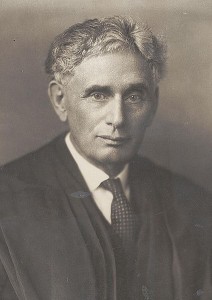Meanwhile, in Pakistan, Revolution Is Scheduled for Thursday
Back in January of last year, the sudden return to Pakistan of cleric Tahir ul Qadri, who had been in a form of exile in Canada, threatened to derail the elections that took place two months later. There were accusations at the time that he was working on behalf of the military. Qadri did not take part in the elections (and is being called out for that now), but he started agitating again last month, with his large demonstrations leading to the arrest of large numbers of his followers and a number of deaths in clashes between his followers and police.
Yesterday, it was announced that Qadri will lead a “revolution march” that begins on August 14 and is intended to turn into a siege of Islamabad. From Geo News:
Pakistan Awami Tehreek (PAT) chief, Dr. Tahirul Qadri Sunday said the ‘revolution march’ will begin on August 14.
“No one will return till the government is toppled and the system changed,” Dr. Qadri told his workers and asked them to take a pledge by raising their hands.
But it will not be just Qadri’s Pakistan Awami Tehreek (PAT) party marching in Islamabad on the 14th. The article continues:
Addressing the PAT workers who had gathered here to observe the party’s Yaum-e-Shuhda, the PAT chief said both ‘Azadi March’ of Imran Khan and ‘revolution march’ of his party will be staged on the same day of August 14.
Dawn is now counting down the days to the march (and somehow they borrow from the NCAA basketball tournament to call this march madness), and frame the major questions the demonstrations pose:
The Pakistan Tehreek-i-Insaf’s (PTI) Azadi March and the Pakistan Awami Tehreek chief Dr Tahirul Qadri’s ‘Revolution March’ will now storm the capital together, further intensifying the stand-off with the government.
Many questions remain unanswered at this stage. Will Imran’s ‘peaceful’ rally be hijacked by Qadri’s more volatile protesters? Whose demands is the combined march really about — Qadri’s, or Imran’s?
Will speculations of a military intervention push the situation beyond the point of no return for Nawaz and co.?
Pakistan’s government continues to negotiate with the groups and refuses to release the 1500 Qadri supporters who have been jailed. Significantly, the government also has called an additional 3000 federal troops to Islamabad to shore up preparations already undertaken by the military:
Pakistan Army’s 111 Brigade, Rangers, elite force and intelligence agencies personnel have already been assigned security duties in Islamabad as PTI and PAT gears up for a march towards the capital to oust the government on August 14.
The federal government called in military to Islamabad, from August 1 by invoking Article 245, for assisting the civil authorities in maintaining law and order situation of Islamabad for three months.
Ironically, despite his government calling in the military to deal with the chaos surrounding the march, Prime Minister Nawaz Sharif is accusing former military dictator Pervez Musharraf (and by extension, Pakistan’s military) of being behind the movement:
In a speech that addressed the ongoing political crisis in the currently, the prime minister on Monday asked who is behind the calls for revolutions and marches in the country.
“I can’t help but laugh at the agendas of these long marches,” Nawaz Sharif said, indirectly referring to Pakistan Tehreek-i-Insaf (PTI) and Pakistan Awami Tehreek (PAT).
“It hurts and confuses me – who has given them these agendas?”
/snip/
The government has accused “Musharraf’s friends” of being behind the political chaos in the country, with PTI and PAT leaders Imran Khan and Tahirul Qadri calling for the prime minister to step down with a march on August 14.
In a veiled reference to former military ruler General (retired) Musharraf, he asked why those who invited the war on terror in Pakistan are not held accountable.
“Have we not learned lessons from what this country has suffered? The constitution has been uprooted, rule of law has been flouted…we suffered billion of dollars in losses [as a result of Pakistan’s involvement]. Who sowed the seeds of terrorism?” he asked.
“Who is going to hold them accountable?”
This week promises to be very revealing about the future of Pakistan’s politics. And shouldn’t someone be raising those same questions from Sharif here in the US? Have we not learned lessons from what we have suffered, as our constitution also was uprooted and rule of law flouted? Shouldn’t we hold someone accountable here?


